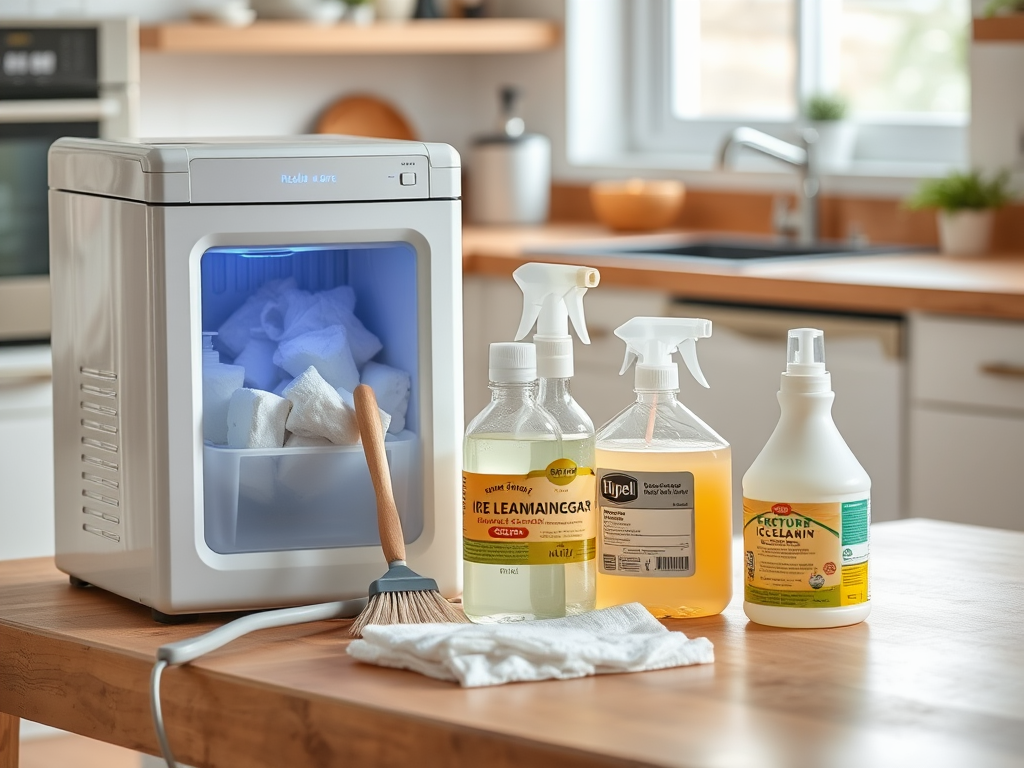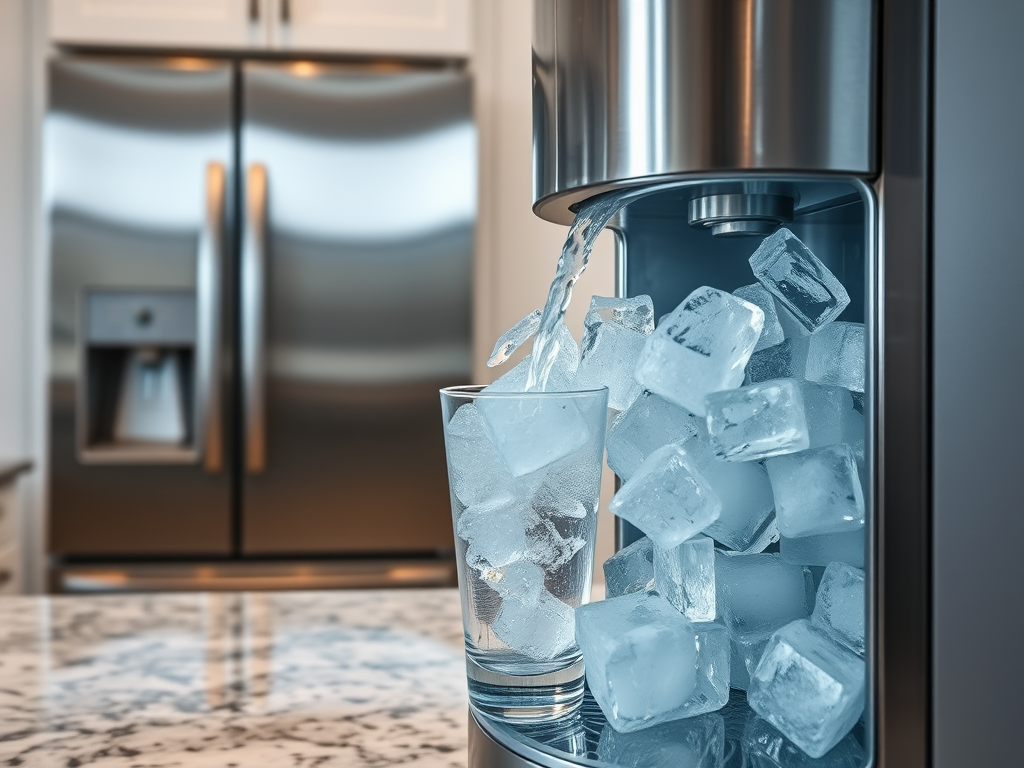Maintaining your ice maker is crucial not only for its longevity but also for the quality of the ice it produces. A clean ice maker ensures that you have fresh, clear ice at your disposal whenever you need it, enhancing your beverages and making your entertaining endeavors effortless. Neglecting this appliance can lead to a myriad of problems, from strange flavors in your ice to mechanical failures. If you want your ice maker to perform at its best, understanding how to care for it is essential. This article will provide you with expert tips on cleaning and maintaining your ice maker to keep it functioning smoothly.
Your ice maker, whether a built-in unit or a standalone model, is an integral part of your kitchen or entertainment space. Many experienced users often overlook the necessary care that these machines require. Ice makers come in various types, and understanding the distinctions will help tailor your maintenance routine accordingly. From residential appliances that create artisan ice cubes to commercial machines producing large quantities of ice, each type has specific maintenance needs. Below, we will delve into how these machines operate and why regular care is vital for their efficiency and performance.
Understanding Your Ice Maker

Ice makers function through a process of freezing water and ejecting the formed ice into a storage bin. However, the failure to maintain them can lead to common issues, including slow ice production, clogs, and even odors. Knowing the parts of your ice maker can provide insights into why certain problems occur. Regular evaluations are often needed to keep ice makers running smoothly; this includes not just cleaning but also monitoring for mechanical issues. Let’s take a closer look at the different types you might encounter.
- Portable Ice Makers: Great for small spaces, they produce ice on demand and can be moved easily.
- Built-in Ice Makers: Typically installed within a refrigerator, they offer convenience but require consistent maintenance.
- Commercial Ice Makers: Designed for heavy usage, making cleaning and upkeep all the more critical.
Regular Cleaning Routines

Establishing a regular cleaning routine is the backbone of effective ice maker maintenance. Depending on usage, ice makers should be cleaned every 3 to 6 months to prevent build-up and ensure ice quality. Regular cleaning removes mineral deposits, bacteria, and other impurities that can affect the taste and safety of your ice. Setting a reminder on your calendar will help you stay consistent. Cleaning might seem tedious, but it’s an investment in the overall health of your appliance. In the following section, we will identify the essential supplies needed.
Gathering the right cleaning supplies can make the process easier and more effective. Before starting the cleaning process, ensure you have the following items ready:
- White vinegar or a mild dish soap for cleaning surfaces.
- A soft cloth or sponge to apply the cleaning solution.
- Water for rinsing and cleaning.
- A small brush to reach into crevices.
- Filter replacements (if applicable).
Step-by-Step Cleaning Guide
Now that you have your supplies at hand, it’s time to dive into the cleaning procedure. Make sure to turn off and unplug the ice maker before beginning any cleaning tasks. This is a crucial step to avoid accidents while you’re working. Follow the steps below to thoroughly clean your ice maker:
- Turn off and unplug your ice maker.
- Remove the ice bin and drain plug.
- Use vinegar or mild soap to clean the interior and exterior surfaces.
- Rinse with clean water and wipe dry.
- If your ice maker has filters, replace them accordingly.
- Reassemble the unit, plug it back in, and test its operation.
| Issue | Possible Solutions |
|---|---|
| Slow Ice Production | Check water supply lines for blockages or leaks. |
| Odors or Discoloration | Clean the unit and replace any used filters. |
| Ice Maker Stops Working | Ensure the unit is plugged in and check for technical problems. |
Additional Maintenance Tips
In addition to regular cleaning, it’s vital to keep an eye on ice production patterns. Watch for any sudden changes that might indicate underlying issues, such as reduced output or odd flavors. Another key aspect of maintenance is to check the water supply lines. These lines should remain free of blockages to prevent ice production delays. Descaling the ice maker periodically can also enhance performance, especially in areas with hard water. By adhering to these strategies, you can prolong the life of your appliance while ensuring crystal-clear ice for your beverages.
Even with the best maintenance practices, your ice maker may still exhibit faults. Here are some signs that indicate it’s time to call in a professional:
- Unusual noises or operation during ice production.
- Ice produced is discolored or has an off-putting odor.
- The unit struggles to produce ice despite regular maintenance.
Conclusion
In conclusion, maintaining your ice maker is not merely about keeping it clean; it’s about ensuring its efficiency and longevity. Regular cleaning, understanding how your ice maker operates, and monitoring for any issues are key components of care. By establishing a consistent routine and being attentive to signs of malfunction, you will catch problems early. Invest time in the maintenance of your ice maker, and you’ll be rewarded with high-quality ice that elevates every drink you prepare.
Frequently Asked Questions
- How often should I clean my ice maker?
It is recommended to clean your ice maker every 3 to 6 months, depending on usage. - What cleaning solutions are safe for my ice maker?
Vinegar and mild dish soap are excellent options for cleaning your ice maker safely. - Why does my ice maker produce cloudy ice?
Cloudy ice is often caused by air bubbles trapped in the ice or impurities in the water supply. - Can I use bleach to clean my ice maker?
No, bleach can leave harmful residues and is not safe for use in food-related appliances. - How do I know if my ice maker needs repairing?
If your ice maker is not producing ice, making strange noises, or giving off foul smells, it may need professional servicing.
